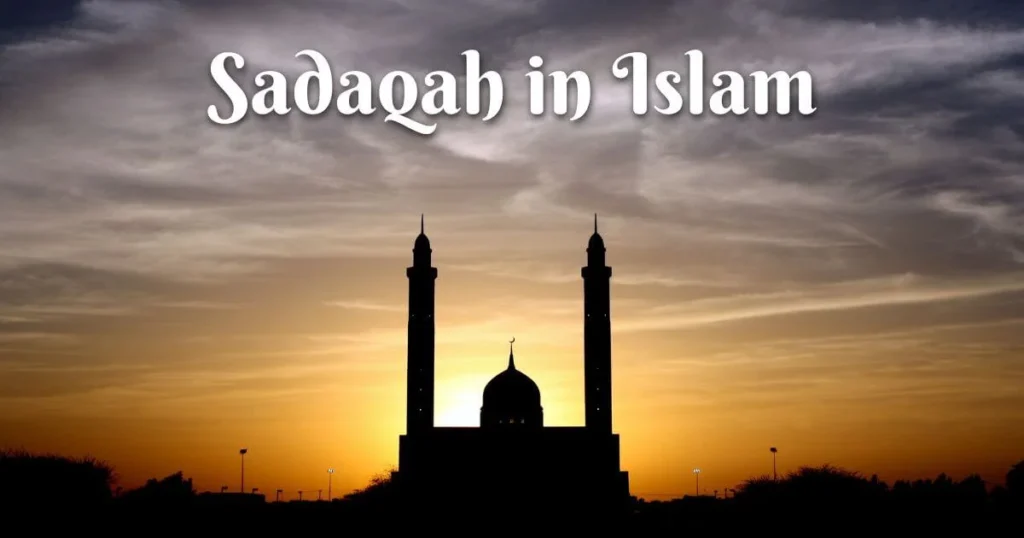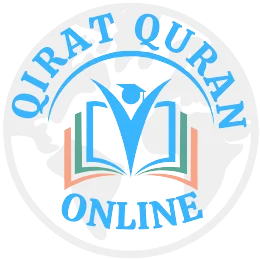
Exploring the Meaning and Significance of Sadaqah in Islam
Introduction
Sadaqah is a shining thread that adds to the greater fabric of Islamic beliefs by incorporating almsgiving, compassion, and social responsibility into Muslim living. This form of charity giving is highly valued in Islam since it upholds the principles of selflessness and community welfare. In this comprehensive lesson, we will look at the meaning of sadaqah, its significance in Islam, the concept of sadaqah jariyah, and the distinctions between sadaqah and zakat.
What is Sadaqah in Islam?
Sadaqah is an Islamic practice of voluntary almsgiving. It comes from the Arabic root word “Sadq,” which means truth or honesty. Sadaqah is the voluntary donation of one’s wealth, time, or resources driven by a genuine desire to serve others and seek Allah’s pleasure as opposed to Zakat, which is required and has strict guidelines.
Sadaqah Meaning in Islam
Sadaqah is more than just a charitable deed; it represents the larger idea of honesty and integrity. Offering others sadaqah is a demonstration of your genuine concern for their well as well as your knowledge of the ephemeral value of worldly goods and the enduring force of good acts.
Sadaqah in Quran
The Quran has numerous chapters that emphasize the virtues of sadaqah and call on believers to carry out charitable activities for the sake of Allah and the community. One such verse is found in Surah Al-Baqarah
(2:261)
“The example of those who spend their wealth in the Way of Allah is like that of a grain of corn that sprouts seven ears, and in every ear, there are a hundred grains. Thus Allah multiplies the action of whomsoever He wills. Allah is Munificent, All-Knowing.”
This verse emphasises the significance of sadaqah in Islam by demonstrating the exponential benefits of selfless giving.
Sadaqah Jariyah
Sadaqah Jariyah, which translates to “continuous charity” or “ongoing charity,” describes charitable deeds that have long-term positive effects that benefit both individuals and communities. Muslims can contribute significantly to society and achieve advantages long after they are gone by taking part in Sadaqah Jariyah.
Common examples of Sadaqah Jariyah include
Building a Mosque
Contributions towards the building of a mosque yield long-term benefits for the donor by creating a place of worship for future generations.
Supporting Educational Initiatives
Contributions towards the building of a mosque yield long-term benefits for the donor by creating a place of worship for future generations.
Digging Wells or Installing Water Sources
By funding the drilling of wells, communities can obtain clean water and reap ongoing benefits from this life-giving resource.
Planting Trees
A sustainable and eco-friendly approach to support the environment and future generations is to donate to reforestation initiatives or plant trees.
Supporting Orphanages or Healthcare Facilities
Contributions to healthcare and orphan care organizations ensure that underprivileged populations will get support in the future.
Sadaqah Jariyah is a living example of the best Islamic precept of bequeathing a good legacy that benefits those who give money even after they pass away.
Difference Between Sadaqah and Zakat
Although both Zakat and Sadaqah are considered forms of charity donation in Islam, they have unique attributes and functions.
Zakat vs Sadaqah
1. Zakat
Obligatory
One of the Five Pillars of Islam, zakat is required by all qualified Muslims whose wealth exceeds a predetermined level (Nisab).
Specific Guidelines
Zakat adheres to strict regulations for the kinds of wealth that must be purified, the minimal threshold (Nisab), and the receivers—the underprivileged, the needy, and other people mentioned in the Quran—among the recipients.
Fixed Percentage
Zakat is typically calculated as 2.5% of one’s accumulated wealth and savings over the course of a lunar year.
Spiritual Purification
Zakat purifies the wealth of the giver and serves as a means of spiritual purification and social justice.
2. Sadaqah
Voluntary
Sadaqah is voluntary and can be given at any time and in any amount according to the individual’s discretion.
Broad Application
Sadaqah has a broader application and can be directed towards various charitable causes, including helping the poor, supporting education, or contributing to community development.
No Fixed Percentage
People are encouraged to donate Sadaqah according to their means and intentions, and there is no set percentage for this.
Flexibility Sadaqah in Islam
Sadaqah allows for flexibility in terms of the recipients and the form of giving, making it a versatile expression of generosity.
While reducing the suffering of people in need is the common purpose of both Sadaqah and Zakat, Sadaqah is a flexible, voluntary act of charity that includes a wide range of humanitarian actions, while Zakat is a mandatory form of giving with stringent standards.
Sadaqah Online
Since sadaqah encompasses more than just donating cash or a portion of our assets, all Muslims are eligible to receive rewards from Allah. Sadaqah is a simple method to improve our eeman. Any Muslim, regardless of income, is always able to offer sadaqah.
Sadaqah Donation
Sadaqa is selfless giving of alms intended to appease God. A voluntary act of kindness towards others, motivated by religion, love, charity, or compassion, is also referred to as sadaqa. These deeds don’t always have to be material or financial. Kind gestures like smiling or lending a hand are considered sadaqa.
Difference between Zakat and Sadaqah
While Islamic charitable giving is the same in both Zakat and Sadaqah, Zakat is required and has particular conditions, such as a 2.5% wealth tax for the poor. In contrast, sadaqah is optional and gives you the freedom to designate a specific beneficiary and amount, providing a more intimate kind of support. Both are beneficial to the Muslim society and yield blessings, but Sadaqah is an expression of personal charity, whereas Zakat is a cornerstone of faith.
Types of Sadaqah
Sadaqah encompasses several acts such as feeding others, offering du’a for others, donating to those in need, protecting someone from harm, providing support to others, and visiting and tending to the ill.
Sadaqah Definition
Sadaqa is selfless giving of alms intended pleasing God.
Sadaqah in Arabic
sadaqah Sadaqah in Arabic صدقة.
What does Sadaqah mean?
“Righteousness” is the literal meaning of the term “sadaqah.” It is used to describe a good deed or an act of charity carried out in Islam without anticipating anything in return.
Benefits of Sadaqah
- Improves societal well-being and contributes to the community’s overall value
- Provides the less fortunate community members with a sense of assurance and aids in meeting their fundamental necessities.
- Lessens the burdens of people who are struggling financially or are in debt
- aids in the recovery of a variety of ailments
- Rids a person’s heart of all the vices associated with avarice, ill will, and an obsession with wealth
- Removes misfortune and boosts riches
- Assures paradise and facilitates passage across the Siraat Bridge
- Helps one obtain the mercy and blessings of Allah
Sadaqah Meaning in English
An essential idea in Islam is sadaqah, which is voluntary generosity or giving.
How to give Sadaqah?
One can donate sadaqah in a variety of ways. Anything that supports or cares for someone who is less fortunate counts, whether you provide money for Sadaqah online, from your house, in person at the mosque, or in the form of tangible gifts or clothing. Donations in cash are acceptable for Sadaqah Jariyah, but they must be made with the intention of supporting a long-term project.
Sadaqah Benefits
- Sadaqah guards against a terrible death for the one who gives it.
- Sadaqah protects the wealth of its giver against theft and ruin.
- A sadaqah prevents disasters from engulfing its provider.
- Sadaqah brings joy to both the giver and the recipient.
Who is Eligible for Sadaqah in Islam?
Anyone can receive a sadaqah, but each deed has a unique reward system. We strive to give to people who are less fortunate every day since it is the most fulfilling thing we can do.
How much Sadaqah to Give?
There is no specific amount for sadaqah, unlike zakat. Anything that you are able to donate financially is acceptable.
Conclusion
Sadaqah is a very significant and voluntary practice that shapes Islam’s charitable mindset. It is the epitome of Islamic virtues such as selflessness, altruism, and genuine devotion to Allah. By applying Sadaqah and Sadaqah Jariyah, Muslims have the opportunity to have a good impact on society and leave a humane legacy that will last a lifetime. Believers embody the spirit of selflessness and contribute to the creation of a more compassionate and just world by giving freely.
FAQS:
Sadaqah in Islam refers to voluntary charity given out of compassion and generosity.
Sadaqah of actions (doing deeds of kindness) and Sadaqah of goods (providing money or belongings) are the two categories of sadaqah.
Sadaqah is not just for the impoverished, even though it is frequently given to those in need.
Sadaqah can take many different forms, such as giving money, doing good deeds, and supporting those in need.
Share on >>
